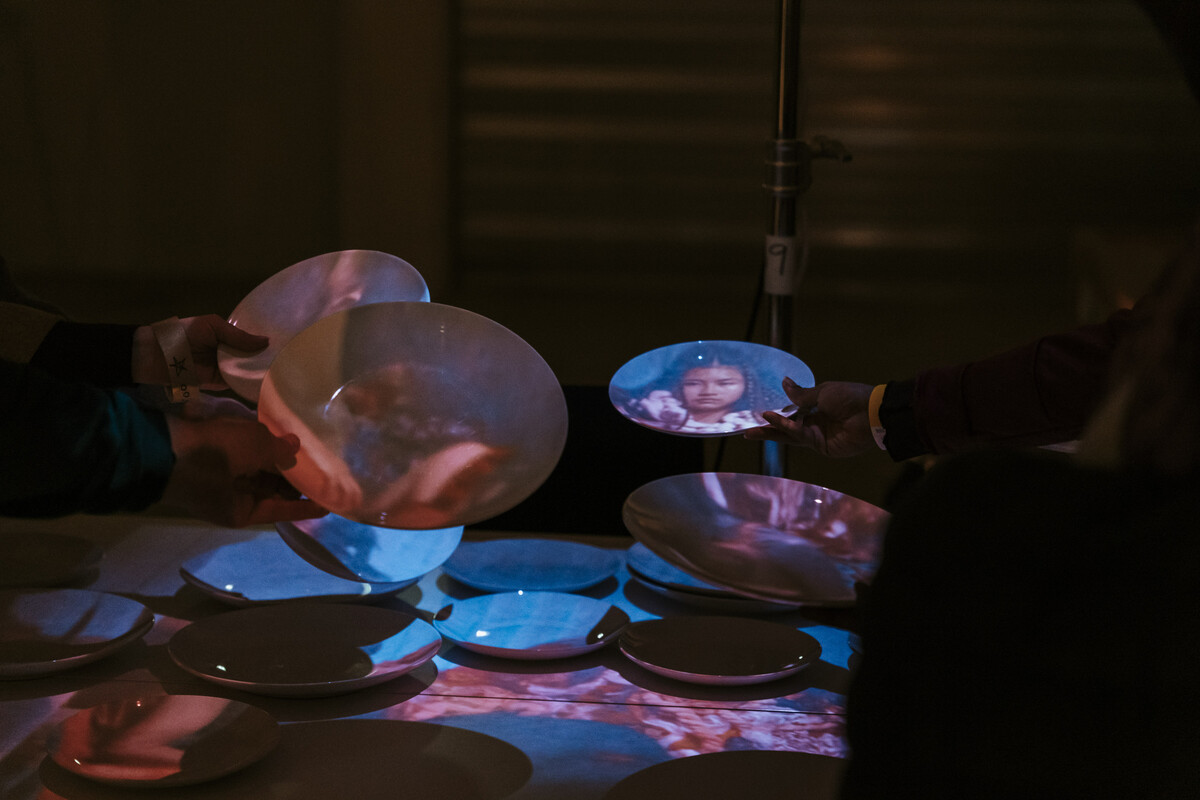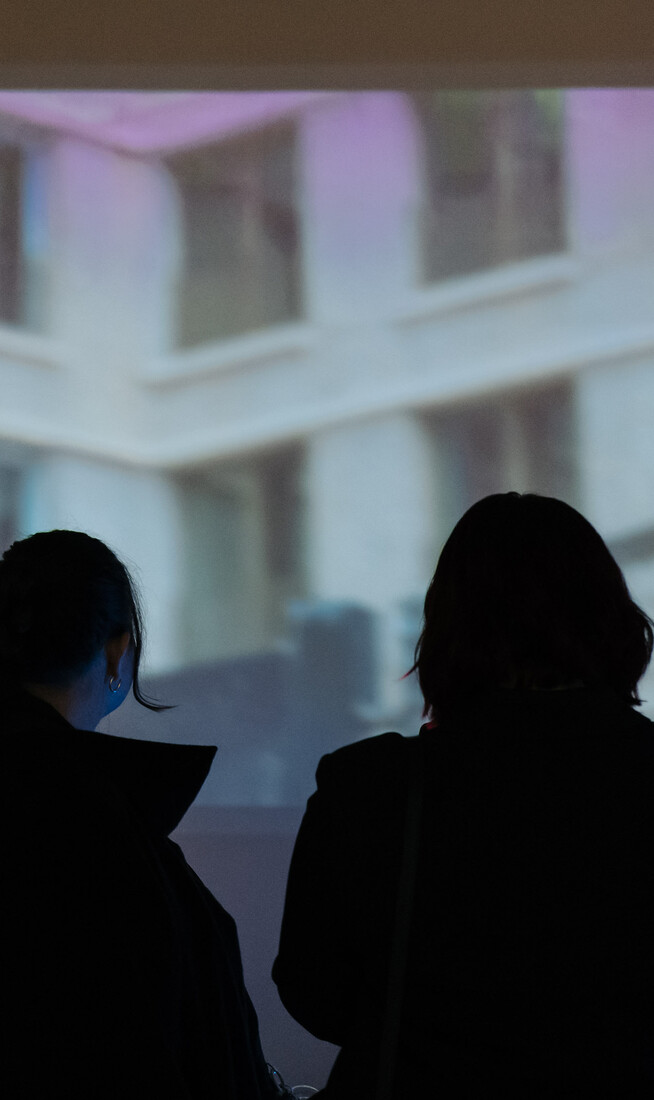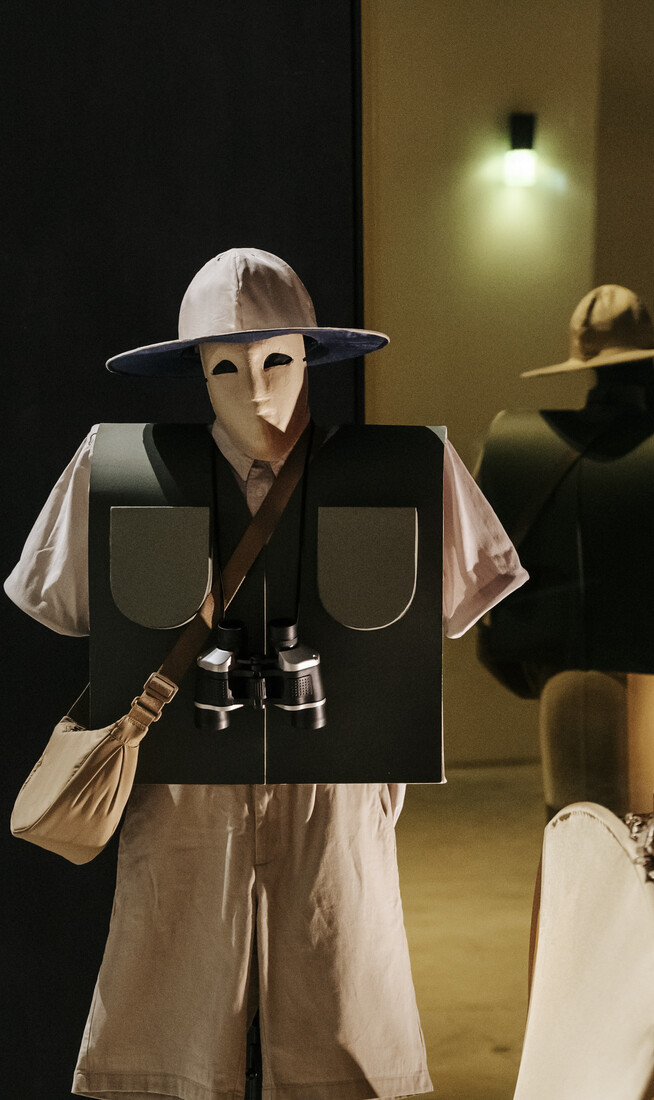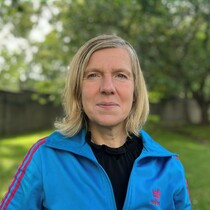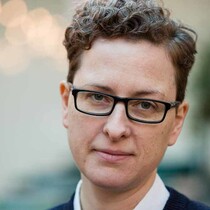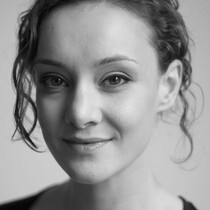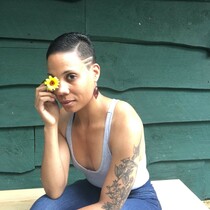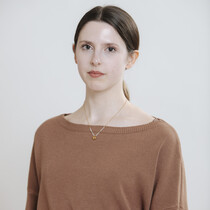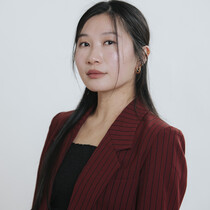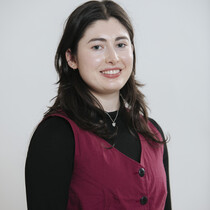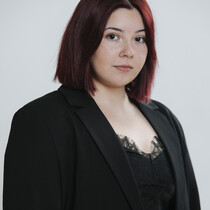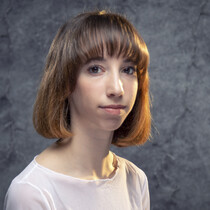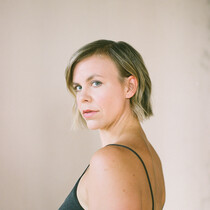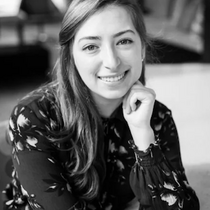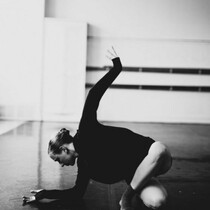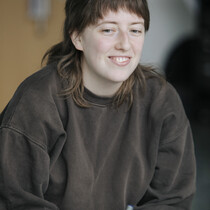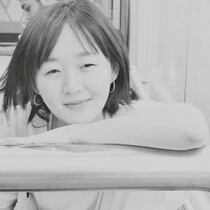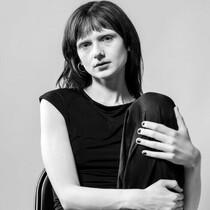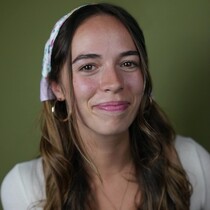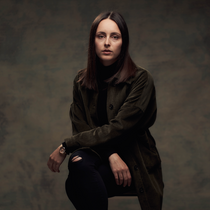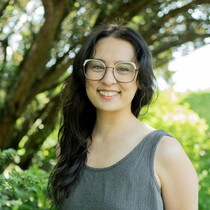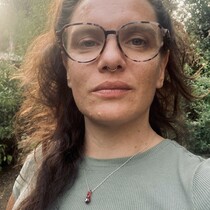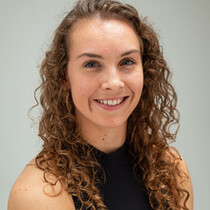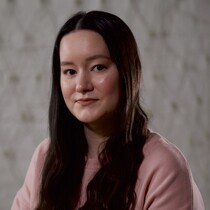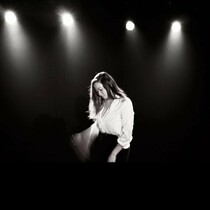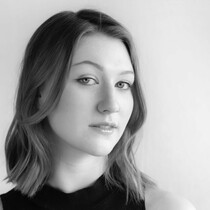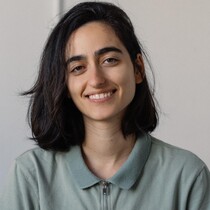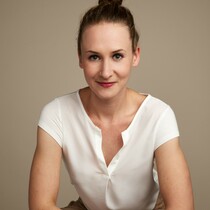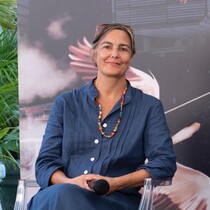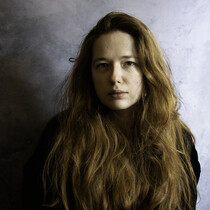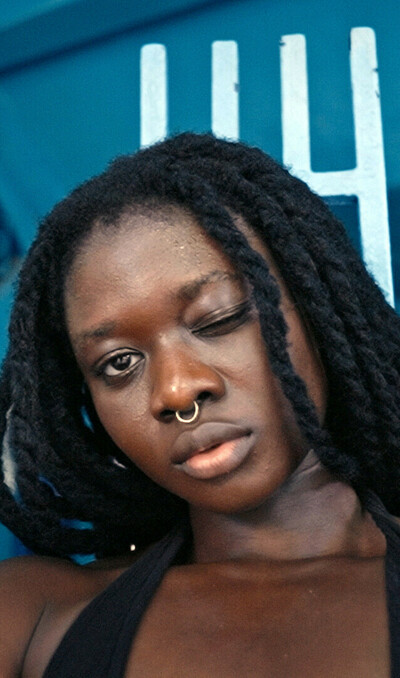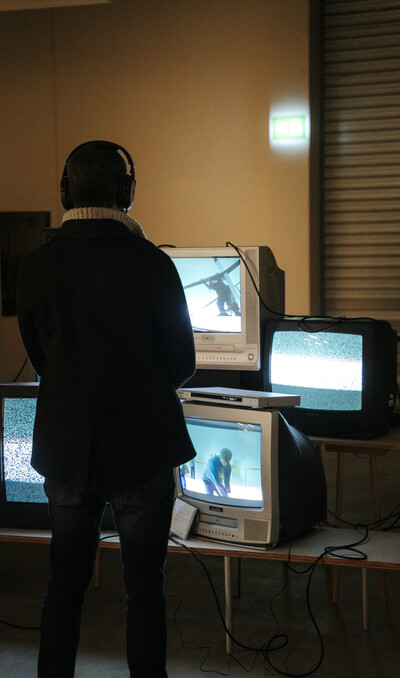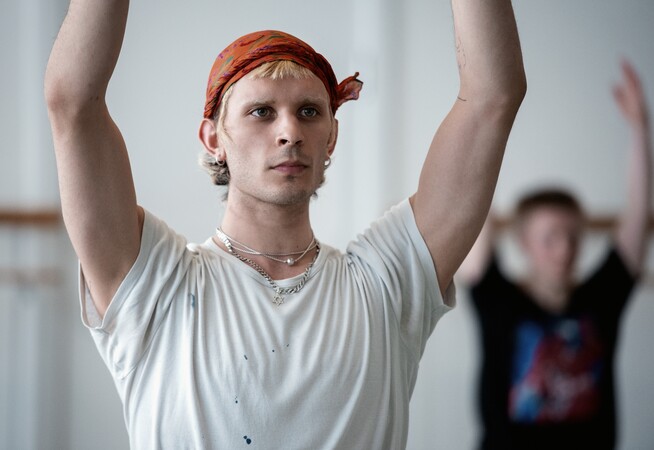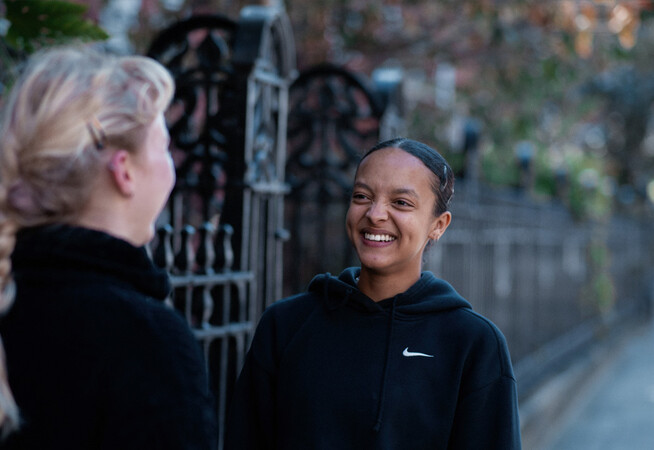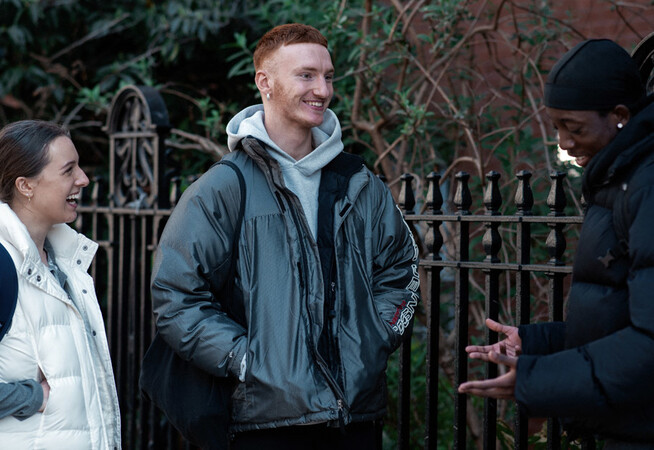MA Screendance
Validated by University of the Arts, London
- Applications
- Open for Sept 2026 entry
- Course length
- 1 year
- Start date
- Sep 2026
Develop your practice in dance filmmaking.
The trailblazing MA Screendance is designed to help you refine and expand your screen-based practice. Led by expert teaching faculty and with a wide range of guest artists and lecturers, this practice-based programme blends hands-on learning and experimentation with theoretical investigation.
Screendance is a flourishing, international art form that incorporates dance, film, design, sound, visual arts and performance. The MA Screendance embraces this interdisciplinarity, encouraging creative exploration, critical enquiry and artistic innovation across the form.
On the course, you’ll explore the histories, contexts and contemporary debates surrounding screendance, whilst developing your artistic voice and honing practical skills. Group and independent research and production processes will invite you to challenge your creative boundaries and engage with questions such as:
What motivates your work?
How does it interact with audiences, other art forms, and society?
What does it mean to create image-based art today?
At London Contemporary Dance School, we foster a dynamic, learner-centred environment. Seminars, workshops, and personal tutorials support your artistic development and reflection, ensuring your ideas and interests are core to your learning. You will also have opportunities to collaborate with peers across disciplines and to build a professional network that extends beyond your time at LCDS.
The MA Screendance programme attracts students from around the world, each coming with unique backgrounds and experiences, giving rise to a rich environment for exchange and innovation. Our graduates go on to lead and shape the future of screendance, evolving the potential of this ever-expanding art form.

This course empowers you to:
- Develop a confident, articulate, independent artistic practice and a wide professional network
- Combine hands-on experimentation, technical skills, contextual research and public engagement
- Expand your vision and explore how your work resonates in today’s world
- Critically assess image-based art in contemporary society
- Contribute to the development of the field of screendance through practice and research
MA Screendance laid a clear path for my professional career. The faculty’s knowledge encouraged me to broaden my horizons, their teachings added depth to my interests and expanded my theoretical and practical skills alike. Finding my artistic language within screendance has allowed me to work as a full-time director since my graduation
- Vilma Tihilä, MA Screendance Graduate 2019
Key Information
What will I be studying?
1. Making Screendance (60 credits)
This module focuses on the fundamental elements of screendance making processes. It encourages you to apply discussion, self-reflection and critical thinking to the development of your creative projects. You will develop practical skills, synthesise research and investigate your practice.
2. Situating Screendance (30 credits)
Situating Sreendance, investigates how the study of screendance, with its interdisciplinary nature, draws on theories of art, photography, film, performance, video and digital technologies, as well as dance. You will engage with a range of texts and resources, while developing your own research interests and skills.
3. Communicating Screendance (30 credits)
This module invites you to think critically about how dance film work meets the public, and the creative, ethical, and practical concerns of selecting and screening work.
You will create a public screendance event - Frame Rush - with your cohort, inviting and selecting international work and connecting with professionals across the field.
4. Final Project (60 credits)
Integrates your practical, theoretical, and technical learning throughout the course. You undertake an independent research project focusing on a chosen area of inquiry within screendance, in a format of your own devising.
Equipment and resources
Our Audio Visual (AV) room provides students with a range of equipment to support their learning and artistic practice. A selection of excellent quality, independent filmmaking equipment is available to book through our online booking system free of charge. This includes high-end equipment reserved exclusively for the MA Screendance students.
A full-time member of staff and technical teachers are available to advise on technical problems and support students in realising their ideas.
There is a wide range of equipment available, including:
- Digital cameras (Blackmagic 6K Pro, Sony FX30, Sony A7 III, Canon 5D, 360 cameras, and more)
- Manfrotto tripods
- Video accessories (Wally Dolly, DJI Ronin Gimbal, C-Stands, external monitors, & various lights)
- MacBook Pro laptops
- Edit suite with iMacs
- Sound equipment (Zoom recorders, booms and various mics)
- Projectors
Entry Requirements
The standard minimum entry requirements for this course are:
• BA (Hons) degree or equivalent academic qualifications
• Alternative qualifications and experience will also be taken into consideration
• Personal statement
• Showreel or selection of prior work
If you don't meet the above requirements, you might still be considered with additional strengths or alternative evidence such as:
• Related academic or professional experience in in dance, film, arts, media, fine arts, performance, or similar field
• The quality of the personal statement
• A strong academic or other professional reference
• A combination of these factors
English language requirements
IELTS level 6.5 or above, with at least 5.5 in reading, writing, listening, and speaking.
Student Visas
If you are an overseas student, you might require a Student Visa to study with us.
Examples of Prior Work in Application
You will be selected based on a collection of movement-focused, moving image works (e.g. screendance, experimental film, short film, installation) submitted via an online link (on Dropbox, Vimeo, YouTube, or your own website, for example). Please include examples of film, video, moving image or installation work you have already made. These could be as director, choreographer, cinematographer, performer, collaborator, and others. You will also need to indicate the role you have undertaken on the production and any other relevant information. Each submitted item must have original titles and credits.
Personal Statement in Application
You should also prepare a personal statement (200 - 400 words), discussing your interest in screendance, relevant experience or abilities, what you would like to achieve on the programme, your career aspirations, as well as why you think you are ready for a Master’s programme and your reasons for choosing London Contemporary Dance School.
Interview
You will be required to attend an interview (on-site or via Zoom/Google Meets). This is an opportunity for the us to learn more about you and your experience and interests, what you expect from the programme and how you intend to fund your studies.
If you are an overseas student who requires a student visa, you must study full-time and complete the course within 12 months. Part-time study is not possible.
How do I apply?
First, you are required to complete our online application form where you input details about yourself, your educational and employment history, examples of prior work and a personal statement about why you want to join our MA Screendance.
You will then be contacted by our admissions team who will let you know if you have been invited to an interview with us. This will be hosted online by the Course Leader along with another member of the MA Screendance faculty.
After the interview, please allow up to 2 weeks to hear an outcome from our admissions team.
Fees & Funding
Fees for 2026/27 and information on funding support can be found here
Leverhulme Trust Scholarship
For Sept 2026 entry, we are offering two partially funded scholarships to all applicants who submit their application by or before 31 Mar 2026. Learn more about the Leverhulme Trust Scholarship.
Postgraduate Masters Loans for Home Students
If you’re starting a master’s degree and from England, you could get a Postgraduate Master’s Loan to help with course fees and living costs. Visit the government website, where it also outlines loans available to you if you are from England, Scotland, Wales and Northern Ireland.
Frequently Asked Questions
I don’t have a prior filmmaking or dance degree, is this course right for me?
Yes! Students on the MA Screendance come to the course from a wide variety of backgrounds and experiences, including performance, choreography, experimental film and visual art.
On the course you will deepen your technical skills, including working with a variety of digital video cameras and editing software. We will guide you through all the stages of production, from having an idea to distributing your finished film.
You will learn how to create choreography for the screen, devise collaborative processes, engage and direct performers and production teams, budget and schedule, film on location, and employ various editing and postproduction processes.
Through a range of different learning modes, including individual and group work, seminars, self-directed study and tutorials, we encourage you to build upon your ideas, interests, skills and artistic practice.
Do I need to have my own equipment?
LCDS has specialist equipment specifically for the exclusive use of the MA Screendance cohort, as well as a wider pool of shared equipment.
This includes: a range of up-to-date digital cameras, including Sony, Canon and Blackmagic; lenses; sound recording, grip and lighting equipment; video tape cameras; and Macs for editing. Each student receives an Adobe Premiere subscription whilst on the course and a small budget to support their individual production.
What does the schedule usually look like?
The MA is a full-time course, with a mixture of taught sessions and self-directed time.
The scheduled sessions usually take place between 10.00-18.00 and add up to about 20-30 hours per week.
There is also designated studio space most days to work on projects and tasks, and you can book additional studio space when needed. The library has computers and a quiet space to work and research.
The weekly schedule changes in response to the units – e.g., in Term 3, the focus is on your own work on the Final Project, with fewer scheduled sessions.
Do I have to focus on a particular role in the filmmaking process?
No. The course is designed to develop your voice as a filmmaker. You will also sometimes support the work of your fellow students in the cohort, and can learn through taking on roles such as performer, cinematographer, lighting designer, assistant director, editor etc. But there is no requirement to take on specific roles (other than the lead in your own projects!).
How big is the cohort?
We usually have 10-15 students a year.
How much of the course is delivered remotely?
Most sessions take place on-site at one of LCDS’s venues. Currently the Situating Screendance (Unit 2) sessions with Cara Hagan are online, as she is based in New York, USA. Some of the classes and tutorials also take place online.
We aim to provide a physical space on-site to attend scheduled online sessions, so that attendance isn’t reliant on a quiet space or strong Wi-Fi signal in your own space.
What kinds of roles can I take on after the course?
Have a look at some of our alumni profiles to see what work they have pursued upon graduation. These include freelance artist and filmmaker, educator, in-house filmmaker for arts institutions, intimacy coordinator, marketing professional, performance-maker, artist-curator and academic.
During the course you will build a confident screen-based practice; expand your network of peers, professional artists and mentors; and be equipped to work in a wide range of current practices and fields. You will leave with a substantial portfolio of work to showcase your unique voice and abilities as a maker.
Are there dance classes as part of the course?
There are choreographic workshops and movement practices as part of the course.
There isn’t a daily “morning class” as you would find in a dance programme. Instead, the MA is designed with the interdisciplinary nature of screendance at its heart, working across physical and image-making practices.
Have a question we’ve not answered?
If there is anything else you want to know, please email us at lcds@theplace.org.uk, or contact course leader Katrina.Mcpherson@theplace.org.uk.
Summary Documents
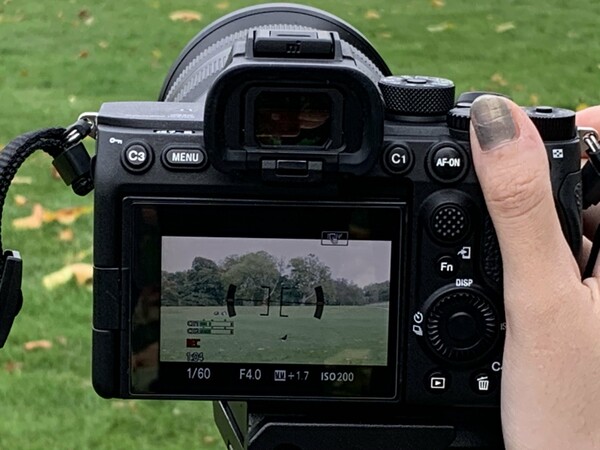
Get a deeper insight into the course
The course got me flexing my creative muscles again. It upskilled me and taught me how to use a camera and editing software, I went from being a serious amateur to being able to create a 20-min short documentary in the final term and think seriously about pursuing a PhD. I grew a tremendous amount over my time on the course, it was a wonderful period of growth and space to figure out what I wanted to create and say through my work.
- Isobel Bridge, MA Screendance Graduate 2023
Meet the course team
Workshops with guest artists, filmmakers and creatives are an intrinsic part of the course.
Our ever-expanding list of guests include Iris Chan, Annie Pui Ling Lok, Dr Marisa Zanotti, Khadifa Wong, Omari Carter, Gabriela Tropia, Dr Simon Ellis, Graeme Miller, Marinda Pennell, Martin Hargreaves, Marisa C. Hayes, Becky Edmunds, Caroline Mawer, Darshan Sing Bhuller, David Hinton, Douglas Rosenberg, Dr Erin Brannigan, Dr Anna Macdonald, Litza Bixler, Jono Smith, Robin Gee, Anthony Van Laast, Haley Muraleedharan, George Bushaway, Dr Priscilla Guy, Lucy Cash
It was great to learn about how specific Anthony van Laast’s storyboards were, it was just incredible to get to see. After working with Anthony I think it's really pushed me to try and take that approach. I’ve definitely seen it take an effect in my creative process.
- Alexa Stevens, MA Screendance Graduate 2021
Our Alumni
Since the inception of this course in 2018, our graduates have gone on to make great strides within the field of Screendance and wider multidisciplinary performing arts as dance filmmakers, movement directors, educators, academics, choreographers, artistic directors, multidisciplinary artists, and more. The definition of what it means to be a Screendance artist is constantly evolving as our graduates mold and expand the artform with their own unique lens. Read more about a few of them below

Eloïse Frey
- Pronouns
- 2024
- Role
- Movement Creative, Dance Filmmaker

Blue Ka Wing
- Pronouns
- 2024
- Role
- Independent Dance Artist

Lizzie Johnstone
- Pronouns
- 2024
- Role
- Screendance Artist

Cat Caruncho
- Pronouns
- 2024
- Role
- Choreographer, Screendance Practitioner

Alessia Langiano
- Pronouns
- 2023
- Role
- Video Maker

Cailin Manning
- Pronouns
- 2023
- Role
- Multidisciplinary Choreographer, Creative Director

Camila Serrano
- Pronouns
- 2023
- Role
- Dance and Documentary Filmmaker

Hannah Myers
- Pronouns
- 2023
- Role
- Director, Producer

Isobel Bridge
- Pronouns
- 2023
- Role
- Filmmaker, Movement Artist

Siyuan Meng
- Pronouns
- 2022
- Role
- Dance Filmmaker, Choreographer, Photographer

Azize Sousami
- Pronouns
- 2022
- Role
- Dancer, Choreographer, Artist, Screendance Producer

Alexa Stevens
- Pronouns
- 2022
- Role
- Dance Filmmaker, Artist

Margo Roe
- Pronouns
- 2021
- Role
- Director, Writer, Movement Director

Sophia Mai Wolfe
- Pronouns
- 2021
- Role
- Artistic Director of F-O-R-M

Andrea Olivares
- Pronouns
- 2021
- Role
- Screendance Artist, Teacher, Art Producer

Annelise Bucher
- Pronouns
- 2021
- Role
- Dance Artist, Choreographer

Emily Adams
- Pronouns
- 2021
- Role
- Dance Filmmaker, Choreographer

Melissa Suan-Baum
- Pronouns
- 2021
- Role
- Movement Director, Film Programmer

Ruby Gadsby
- Pronouns
- 2020
- Role
- Contemporary Dance Artist, Screendance Teacher

Tal Kronkop
- Pronouns
- 2020
- Role
- Visual Artist

Vilma Tihilä
- Pronouns
- 2019
- Role
- Dance Film Director

Omari 'Motion' Carter
- Pronouns
- 2019
- Role
- Founder of Motion Dance Collective, Educator

Luisa Lazzaro
- Pronouns
- 2019
- Role
- Filmmaker, Intimacy Coordinator, Writer

Maria Kapala
- Pronouns
- 2019
- Role
- Director, Choreographer, Screenwriter
Watch
Watch our most recent videos; student interviews, a live postgraduate panel discussion and the trailer for Frame Rush, the screendance event curated by our students. A great way to find out about the course and what our students think.

MA Screendance trailer, discover the only MA of its kind in the world Watch Now

Frame Rush trailer, the screendance event curated by our students Watch Now

MA Screendance students talk about their final projects Watch Now
Find out about support available at LCDS as you transition to student life in London:
Get in touch
If you have any questions about the course, how to apply, living in London or anything else, we are here to help
